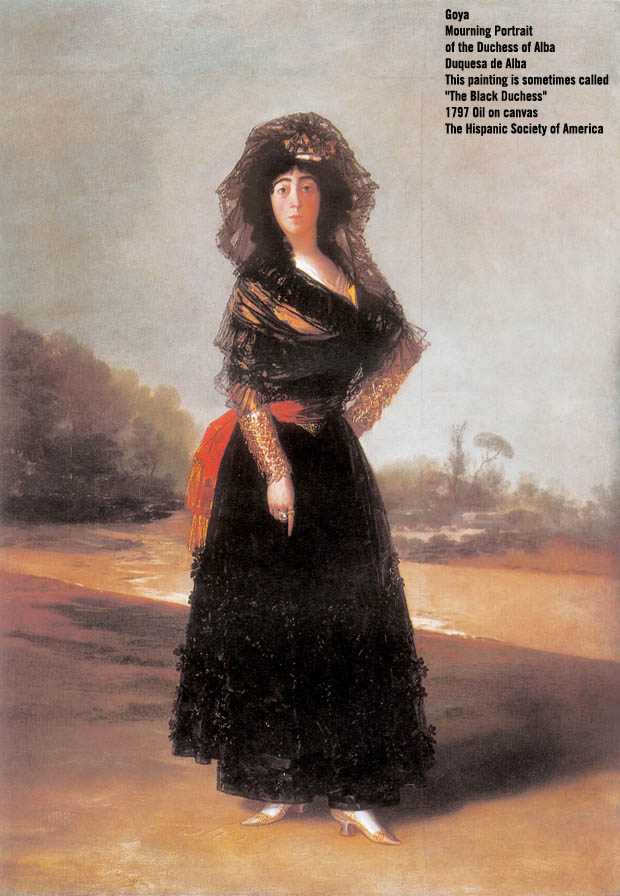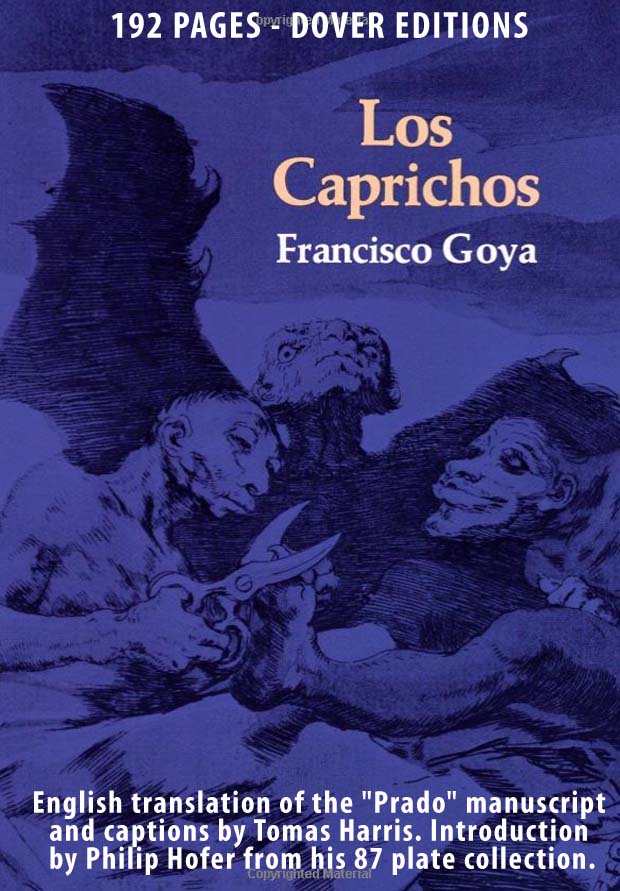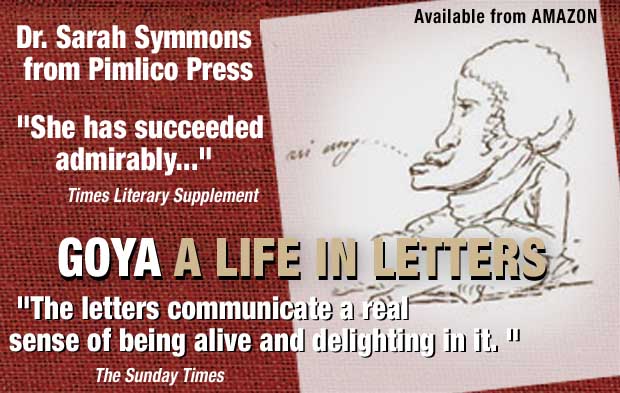Goya | "Duchess Black"
View the "Duchess White" painting by Goya
The Hispanic Society of America, which owns this painting, has a web site here.
The Duchess in this portrait is thirty-five. Her husband had died the year before, and she is dressed in mourning attire. On the ground, written in the soil is "solo Goya" (or: Goya Alone). On her fingers are two rings, one saying "Alba" and the one pointing at the inscription in the dirt "Goya." The inscription had originally been covered, but during a cleaning of the painting during the 20th century, the words became seen. The painting stayed in Goya's personal possession until his death. Whether the image was not accepted by the Duchess, and thus stayed with Goya, or if he rather chose to keep it himself, either through change of mind or some other reason, is not documented. This painting is sometimes used as evidence of the supposed intimate nature of the relationship she and Goya held. However, it is worth noting, Goya commanded the skills to produce a portrait of the duchess (and anyone he was familair with) without them modeling for it.
"The duchess of Alba was a vain beauty, with plenty to be vain about. She was as vain as the queen herself, Maria Luisa – who, in terms of physical beauty at least, had rather less to vaunt herself on. The index of their vanity was, of course, their mode of dress, which Goya recorded with insatiable attentiveness, curiosity, and pleasure. Detail for detail, no great tragic artist has ever been more absorbed, in his untragic moments, by the minutiae of fashion than Goya.
(From Robert Hughes book Goya
, page 164. Knopf, 2003)
AMAZON
Goya The Terrible Sublime - Graphic Novel - (Spanish Edition) - Amazon
"From this headlong seizure of life we should not expect a calm and refined art, nor a reflective one. Yet Goya was more than a Nietzschean egoist riding roughshod over the world to assert his supermanhood. He was receptive to all shades of feeling, and it was his extreme sensitivity as well as his muscular temerity that actuated his assaults on the outrageous society of Spain." From Thomas Craven's essay on Goya from MEN OF ART (1931).
"...Loneliness has its limits, for Goya was not a prophet but a painter. If he had not been a painter his attitude to life would have found expression only in preaching or suicide." From Andre Malroux's essay in SATURN: AN ESSAY ON GOYA (1957).
"Goya is always a great artist, often a frightening one...light and shade play upon atrocious horrors." From Charles Baudelaire's essay on Goya from CURIOSITES ESTRANGERS (1842).
"[An] extraordinary mingling of hatred and compassion, despair and sardonic humour, realism and fantasy." From the foreword by Aldous Huxley to THE COMPLETE ETCHINGS OF GOYA (1962).
"His analysis in paint, chalk and ink of mass disaster and human frailty pointed to someone obsessed with the chaos of existence..." From the book on Goya by Sarah Symmons (1998).
"I cannot forgive you for admiring Goya...I find nothing in the least pleasing about his paintings or his etchings..." From a letter to (spanish) Duchess Colonna from the French writer Prosper Merimee (1869).
GOYA : Los Caprichos - Dover Edition - Amazon





